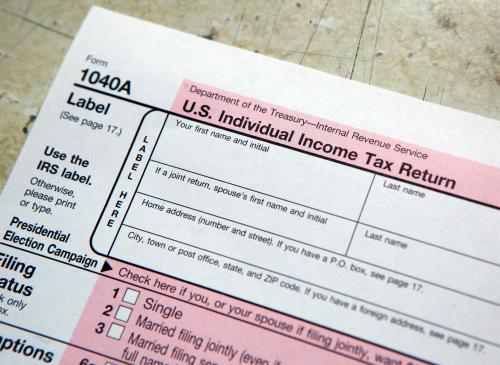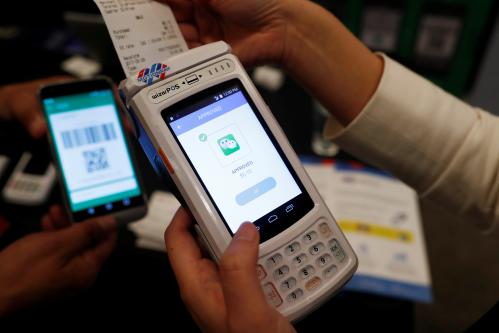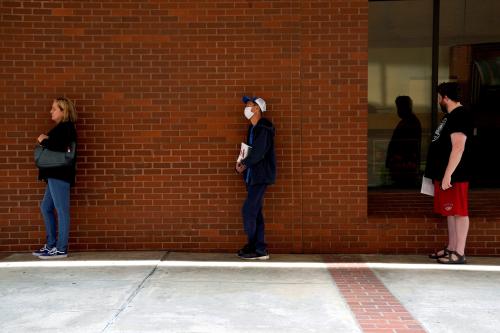While America’s 30 million small businesses are fighting for their lives against the COVID-19 recession, emergency assistance is facing a roadblock: anti-money laundering (AML) rules. Unless Treasury changes this system, which it can, it will cost American businesses and banks billions of dollars, slow down funds when time is of the essence for keeping Americans at work, and potentially deliver a knockout blow to some businesses who can’t afford to wait. If Congress is going legislate more money on this program then it should fix Treasury’s regulatory error.
Here’s the problem: Treasury decided to require – though Congress did not — that lenders in the $350-billion Paycheck Protection Act created by the ”Coronavirus Aid, Relief, and. Economic Security Act” make sure all new loans to small businesses comply with the Know Your Customer (KYC) requirement for anti-money laundering purposes. KYC is a costly and time-consuming process, and puts the risk of error on the banks’ shoulders. It is one reason why some of the largest banks are only offering these loans to existing customers whom they already know.
Examining America’s small businesses to be certain they aren’t laundering money is an impossible task and a questionable goal if the point of the legislation is to get money out the door quickly. Small businesses employ over half of the American workforce, the point of the PPP was to quickly get money to these businesses so they don’t layoff all their workers. The PPP’s roll out on Friday was met with substantial demand and frustration by many small businesses, banks, and business lenders who were unable to access the program. The money is doled out first-come-first-served, compounding concerns that slowing down applications and preferential treatment of existing borrowers will mean funds run out.
Most small businesses do not have the cash on hand to survive even rosiest estimates of a COVID-19 quarantine.
The PPP program works through the Small Business Administration (SBA), and the federal government guarantees 100% of qualified loans to eligible small businesses so banks aren’t taking any credit risk. The loans are to be forgiven if small businesses meet certain requirements, the most important of which is to maintain their current levels of employment through June 30th. Most of the loans likely will turn into government grants. For this approach to work, banks must participate quickly and economically. Time is of the essence, because most small businesses do not have the cash on hand to survive even rosiest estimates of a COVID-19 quarantine.
The expense and risk of AML/KYC compliance certification makes banks question the wisdom of lending to new customers. Bank compliance departments remember all-too-well the billions of dollars paid for violation of these reviews in the past, and these were in large part because they did not adequately “know their customers.”
For these reasons, banks like Wells Fargo restricted loans to applicants with existing loan relationships and now has run out of capacity for more loans. Bank of America initially limited access to its preferred customers. When a new small business comes calling, asking for a small two-month loan at a 1% interest rate, the more prudent course from a bank’s risk management perspective, even with a government guarantee, may simply be to not make the loan at all.
At best, then, the AML/KYC requirements of the PPP program are slowing down distribution of these much-needed loans, and at worse making the program unworkable for some. The result is restricting credit to select companies on the basis of prior lending relationships with SBA preferred banks. That was not the intention of the Senators who authored this program. Both Senators Marco Rubio (R-FL) and Ben Cardin (D- MD) have criticized Treasury’s decision to apply AML.
Congress did not include an AML/KYC requirement in the original law. The legislation promotes a streamlined application process with a goal of getting money out quickly. This requirement was added later by the Treasury, and has become an onerous regulation exceeding Congressional intent. Treasury can solve this problem by simply removing the AML requirements, or by telling banks they will be held harmless if problems are discovered. Congress should remove the requirement as part of any new funds. This will increase the chances that banks will engage in the program and widen the net of small business that can participate. And when this crisis has past, Treasury and Congress need to re-evaluate the AML and KYC system, which this episode has proven, that left on auto-pilot has gone haywire.
The clock is ticking….
The authors did not receive financial support from any firm or person for this article or from any firm or person with a financial or political interest in this article. They are currently not an officer, director, or board member of any organization with an interest in this article.
The Brookings Institution is committed to quality, independence, and impact.
We are supported by a diverse array of funders. In line with our values and policies, each Brookings publication represents the sole views of its author(s).









Commentary
Op-edAnti-money laundering rules: An emergency assistance roadblock
April 8, 2020